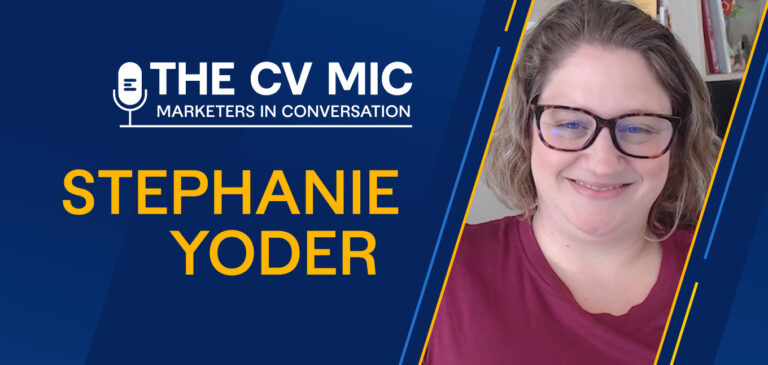A ghostwriter is someone who does all the hard work of writing, while someone else gets the byline or author credit. Why would a person do this? Why, for money, of course. People who understand how to monetize ghostwriting may have few hits when you Google-search their bylines. Only their passion projects and major, “Best of” list-earners will have their name attached. In fact, many of the best-of list-toppers will not have their name, because the client didn’t want it there, and the ghost writer was willing to go totally incognito for a price.
On the other hand, many ghostwriters may show up often in Google searches — always with their byline attached to prestigious articles in low-paying publications. You wonder, “How do they make ends meet?” The answer is, if they’re not independently wealthy or blessed with a wealthy spouse, they have a well-paid invisible gig. And what’s less visible than a ghost?
The savvy ghostwriter has long since stopped counting their bylines. They don’t waste time with other people’s memoirs (unless the person is famous) or screenplays (unless their partner has at least one hit film or show). They’re not worried about getting $50 more per article on a mid-tier site. They go for the real money. And that sustains them to pursue their own passion projects.
This article will look at six categories where ghostwriters make significant fees. Maybe one of them is right for you? Or, if one of these categories describes you, and you’re constantly struggling to get “your” voice right for publication, maybe there’s a writer just waiting out there to nail it for you.
Business voices for executives
From blogs on Huffington Post to series on brand-owned publications to “letters from the CEO” to the universally desired print bestseller — if a business professional has the byline, there’s a good chance a ghostwriter actually did the wordsmithing. The reasons for this are numerous: Business executives are occupied with the responsibilities of running business units at corporations. Successful entrepreneurs are running their own companies. While both types of person might be able to grind out a great written piece if they put the time into it, their time is better spent elsewhere. Plus, they haven’t honed their writing skills to the same degree a professional writer has, so it will take them longer.
It makes a lot of sense for a business expert to collaborate with a ghostwriter for the purpose of turning notes and thoughts into cogent, digestible, impactful writing. It’s time-efficient, and it improves the clarity of their message.
Tech brands and personalities
Even more so than in business writing, it makes sense that tech personalities and brands would hire professionals to be the voice of their company. Many tech businesses exist solely online and in the cloud. They need to sell their SAS or content delivery platform or app, and in order to do this, they need to reach people and make them understand why their product is necessary. Thus, branding and messaging in tech is essential, even though building a brand may prove confounding for the creators.
While co-founders, product managers and certain execs may be intrinsically aware of how their product functions, they may not be able to explain it to laymen — nor impart the value of it. And basically all the other roles within a tech company are not intended to be consumer-facing. In many companies, even the marketing department specializes in programmatic media buying rather than native content or message-driven marketing. And this approach can fail to engage consumers or build brand loyalty.
Enter the ghostwriter — a person whose special skill set is to collect and absorb information about a brand, figure out the DNA of it, and then create a story and messages that introduce it to the regular consumer. Whether this is through clever social media, high-budget broadcast campaigns, a drip-feed of SEO branded content, or turning some charismatic executive into a celebrity, the job of the tech ghostwriter is to humanize the technology.
Medical and scientific ghostwriters
The medical category is more ethically dubious than business and tech ghostwriting, basically because nobody wants medical advice from people who are not medical professionals. It’s not just that doctors and scientists are considered to have a special cache of knowledge; it’s that people want to get it from them firsthand.
There has been much recent controversy around this, the nadir of which was a 2010 Senate investigation. And yet, many institutions and most private companies continue to use it. Because, consider the alternative: The longest-running joke in popular medical lexicon hinges on the impossibility of reading a doctor’s handwriting. And if you think that’s bad, try reading the hastily scrawled-out notes that a research scientist scribbles onto Post-Its when they’re getting ready to deliver a speech at a conference.
There’s a painstaking method to ethically transmuting medical and scientific knowledge into a narrative. Ghostwriters in the field have a knack for absorbing deep tranches of information relatively quickly yet meticulously, taking copious relevant notes, and disseminating information in a voice that laymen can understand. The good ones also have an empathic bond with the erudite personalities whose voices they become. While many of these writers have some scientific education or expertise, others are generalists or writers from other specialty areas. They typically have a hand in research reporting and other academia, but they maximize earnings when they move over to the marketing arena.
Celebrity collaborations
For ghostwriters who are discreet enough and good enough to get tapped into one of the celeb-ghostwriter inner circles, the possibilities of lending one’s voice to a famous face are endless. There are people who “co-write” bestselling fiction with famous model-actors; and people who write the actual life stories of celebrities, and people who do social media and blogging for A-list actresses. One of the more surprising aspects of this job is, the ghostwriter doesn’t always even get to speak to the person whose personality they’re assuming in text.
Another important thing to remember when considering the celebrity ghostwriter is, the definition of “celebrity” varies. Looking outside of Hollywood and lifestyle magazines, there’s another subset of ghostwriter who create hardback memoirs of political figures, marketing newsletters from famous brand founders, and self-help tips from modern day gurus.
Read here about the life of a celebrity ghostwriter.
Social influencer content
The recent explosion in social influencer marketing and the “influencer economy” has created a new cottage industry for nimble, ambitious young writers. Think of it as celebrity ghostwriting for the mobile-first, millennial generation of celebs. And just as the delivery platforms have changed, the typical ghostwriter purview has too.
Five years ago, writing $50 blog posts for a women’s lifestyle site used to be a stepping stone to a “real” writing career. Nowadays, writing blog posts or shooting IG pictures for “influencers” in fashion, beauty and entertainment can create the same kind of jump-off for a chameleon type of writer. Meaning, one who’s comfortable assuming some quasi-famous other’s tone, style, backstory and day-to-day life. It’s sort of like an inverse of a celebrity gossip magazine, or a memoir writer, because these ghostwriters actually create the public persona and life that avid fans worldwide track on social media. The biggest stumbling block for many of them is that this creation may be entirely disconnected from who or what the real-life person is.
Speech writing
More than any other type of ghostwriters, speechwriters occupy a particular place within the taxonomy of pop culture character types. Credit this to the Aaron Sorkin genre of smart political television dramas, wherein no cast is complete without a quirky, annoying yet endearing speechwriter ever at the side of the big political boss.
Life imitated art during the Obama administration, when speechwriter Jon Favreau became a micro-celebrity in intellectual circles — and in other circles, where no one really knew whether he was the same Jon Favreau as appeared in ‘Swingers’. (He isn’t.) And in a perfect cycle, art imitated life when political speechwriters like Favreau’s colleague Jon Lovett got deal to write a TV drama about, you guessed it, the White House.
Meanwhile in less splashy news, David Litt, a junior speechwriter for the Obama White House, published a funny and self-effacing memoir entitled ‘Thanks Obama: My Hopey, Changey White House Years’ that fits right into his new profile as a a ‘Funny or Die’ head writer. And in recent news outside the Obama camp, Barton Swaim of South Carolina finally got sole authorship on a book about his experience writing for ex-governor, now Congressman Mark Sanford. In the news currently, Lauren Peterson, former Hillary for America digital content director, co-wrote Planned Parenthood president’s Cecile Richards’ new release ‘Make Trouble’.
For most speechwriters, ghostwriting is a lucrative opportunity to utilize one’s own innate rhetorical skill in service of someone else’s platform. But of all the ghostwriting concentrations, this one has the most potential to transition its ghosts into fully realized, recognizable names based on the words they spoke as ghosts.






